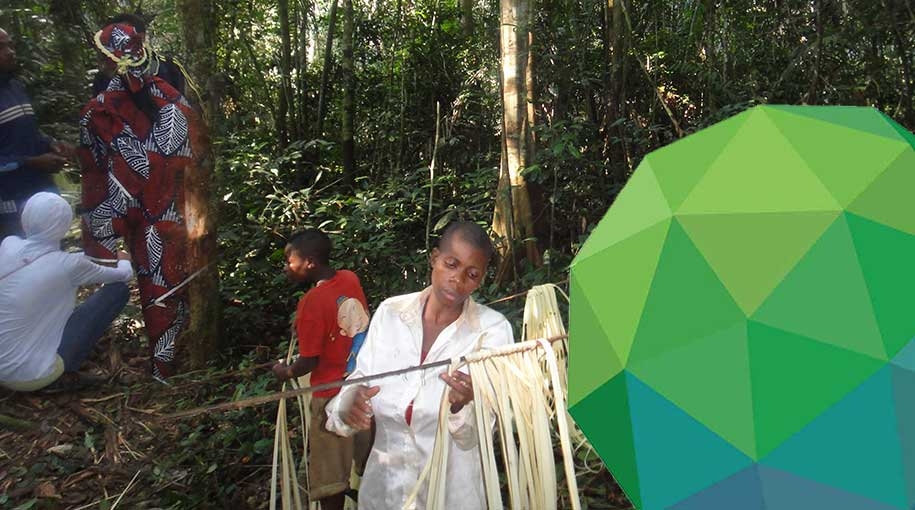The Green Climate Fund approved sixteen (16) new projects amounting to over USD 1 billion, in its recently concluded 27th Board meeting that was held virtually on 9-13 November 2020. At least six of these newly approved GCF projects will impact indigenous peoples.
While most of the projects were approved by the Board without so much discussion, there were some proposals that were met with different positions by both the Board members and observer organizations.
The GCF Board also approved other projects that are going to be either implemented in indigenous peoples’ territories, or would impact indigenous peoples directly or indirectly. These include FP141: Improving Adaptive Capacity and Risk Management of Rural Communities in Mongolia, FP 142: Argentina REDD-plus RBP for results period 2014-2016, FP 143: Planting Climate Resilience in Rural Communities of the Northeast (PCRP), Brazil, FP 144: Costa Rica REDD+ Results Based Payments for 2014 and 2015, FP 145: RELIVE – REsilient LIVElihoods of vulnerable smallholder farmers in the Mayan landscapes and the Dry Corridor of Guatemala and FP 149: Green Climate Financing Facility for Local Financial Institutions in Latin-America.
Through the CSO active observers, Erika Lennon and Eileen Cunningham Mairena, the issues of indigenous peoples including ensuring documentation and reporting of how Free, Prior and Informed Consent were obtained and formulation of safeguard mechanisms were reiterated.
Meanwhile, the GCF approved the application for accreditation of four new entities[2] to be intermediaries of climate change mitigation and adaption funds to developing countries. The IP team noted that during the midterm review of accreditation of the GCF secretariat, there was no mention of the GCF Indigenous Peoples Policy and of how accredited entities are implementing it. This is particularly worrisome as there is no clear mechanism as to how the GCF monitors compliance of accredited entities apart from their self-assessment or Annual Performance Reports (APR). The Independent Evaluation Unit of the GCF also reported that there is very limited reporting on Environmental and Social Safeguards (ESS) and gender from the APRs of entities. For instance, only 28 of the 55 APRs self-reported on tracking ESS and gender, and only one APR mentioned indigenous peoples.[3]
Additionally, the CSOs, IPs and local communities reiterated the need for entities seeking for accreditation to comply with the GCF standards and policies including, but not limited to, developing their own indigenous peoples’ policy.
It took the Board early morning of the 6th day (Asia time zone) of the meeting to adopt the GCF’s Updated Strategic Plan for 2020-2023 which will be the basis of the fund’s direction under its first replenishment. The CSO observers expressed their disappointment at how little their inputs have been taken into account, including fully integrating equity and human rights in the Fund’s framework and operations. Additionally, the Civil society, local community and indigenous peoples’ network reiterated that the Plan falls short in improving GCF operations related to Environmental and Social Safeguards (ESSs), indigenous peoples, and gender standards and information disclosure. As such, the “failure to use a human-rights-centered approach that explicitly elaborates the protection and active promotion of beneficiaries’ rights, needs, and capabilities, a strong focus on equity, and a commitment to make GCF policies fully responsive to those concerns is worrisome for a fund that has a signaling function within the global climate finance architecture.”
Thus, it was recommended by the observers that “the remaining significant weaknesses in the proposed plan should still be addressed post approval as the Updated Strategic Plan remains a living document”.
The Secretariat updated the Integrated Results Management Framework (IRMF) of the GCF based on the comments received from technical sessions with Board members and Accredited Entities. The IRMF document was just circulated to the observers a few days before the board meeting, so there was no ample time to discuss it. Hence, the observers urged the Secretariat to invite civil society, local communities and Indigenous People stakeholders, coordinated through the CSO active observers, to provide a written submission with their expertise and technical inputs on both the indicators and process as presented in this current draft before finalizing the IRMF for Board consideration at B.28.
The Green Climate Fund was established in the 2010 by the Conference of Parties as the financial operating entity of the United Nations Framework Convention on Climate Change to support climate change actions in developing countries.
The 27th Board meeting was virtually participated in by the IP Advocacy team composed of Eileen Cunningham Mairena of Centro para la Autonomía y el Desarrollo de los Pueblos Indígenas, Nicaragua; Helen Magata of Tebtebba Foundation, Tunga Rai of Federation of Indigenous Nationalities in Nepal (NEFIN) and Kathrin Wessendorf of International Work Group on Indigenous Affairs (IWGIA).
---
[1] This is the indigenous governance structure of the Caribbean Region of Nicaragua
[2] Applicant 102 (APL102) is Kemitraan bagi Pembaruan Tata Pemerintahan (Partnership for Governance Reform) (Kemitraan), based in Indonesia; Applicant 103 (APL103) is the National Trust for Nature Conservation (NTNC), based in Nepal; Applicant 104 (APL104) is KCB Bank Kenya Limited (KCB), based in Kenya; and Applicant 105 (APL105) Camco Management Limited (Camco), based in the United Kingdom of Great Britain and Northern Ireland
[3] The IEU Evaluations were not presented during the board meeting due to time constraints


